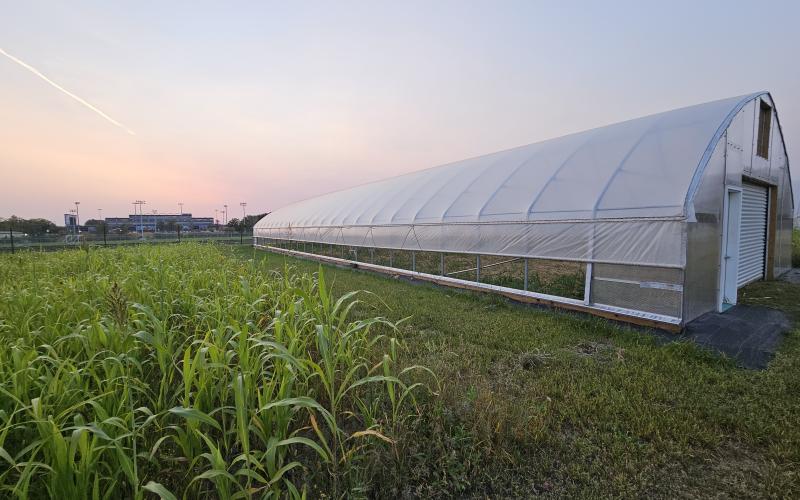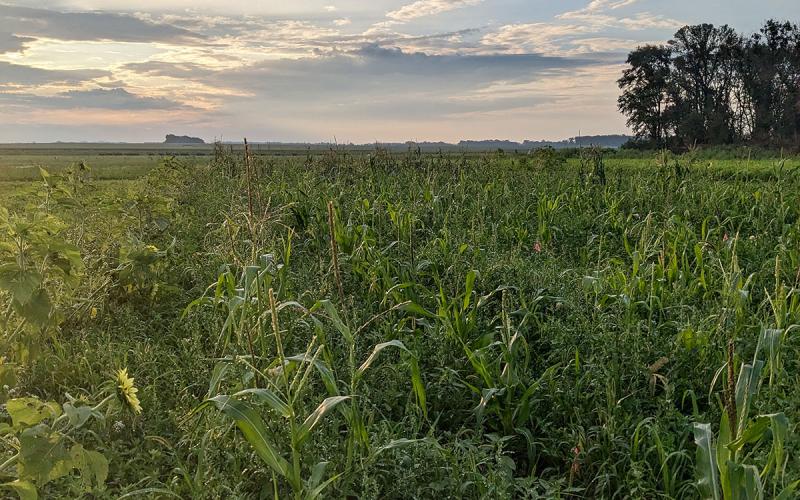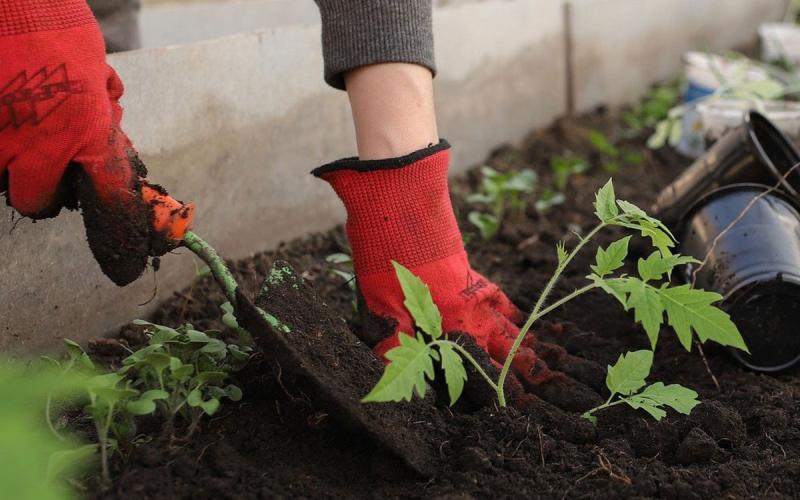Written by Rhoda Burrows, former Professor & SDSU Extension Horticulture Specialist.
Keep your garden produce safe!
Every so often we hear about people getting sick from eating raw produce that got contaminated somewhere on its path from the field to the consumer. Commercial growers are taking great care to keep your food safe, and there are new national rules to guide them. Following are some tips for home gardeners to help keep their fruits and vegetables safe.
Manure
- Do not use manure on your garden unless it is at least six months old, or has been carefully heat composted. If you purchase manure, make sure it has been properly composted. If you are not certain, treat it as raw manure that will need to be aged before use.
- If you have rabbits, deer, or other wildlife that regularly visit your garden, fence them out. Their droppings are raw manure, and can transmit pathogens to humans. The same is true for pets.
- If you discover piles of animal droppings in the spring (or anytime during the growing season), don’t grow anything that you will eat raw in that spot. Carefully remove the droppings, and mark the spot so you don’t come back and plant raw vegetables in that spot that year. Use that area for sweet corn, potatoes, winter squash or pumpkins, or other vegetables that will be thoroughly cooked. Or plant some flowers there, to help support beneficial insects in your garden, and please the eye as well.
- Don’t locate your garden downslope or downwind from an area where animal droppings are concentrated (such as a feedlot or corral). If downslope, construct a berm to divert any run-off. A windbreak will help reduce problems, although dust and insects may still travel between the two areas.
Water
- If you water from a well, have the water tested. Make sure the well-head is in good condition, and that the ground slopes away from it. If you have heavy rains or flooding and water was standing at/near the well-head, you should have the water tested again.
- Avoid using “captured” water, such as run-off from a roof, to irrigate your garden. It may well be contaminated with bird (or squirrel) droppings. If you have no other water source, grow vegetables that will be cooked (see above), or at least those that will bear fruit well off the ground (such as trellised tomatoes, cucumbers, etc.), and use a mulch over the ground surface to reduce chances of soil splash.
- Always use “potable” water – safe for drinking – for mixing up any sprays that will be applied to your fruits or vegetables. Sprayers are great places for unwelcome bacteria to breed!
- If your garden area has been flooded, consider the source of the water. Could it be carrying any chemicals or pesticides from treated areas upstream? Has it come through a pasture or feedlot somewhere upstream? If so, you may want to relocate your garden, or at the most, harvest only produce that will be cooked, or will be born well off the ground (preferably with a mulch between the soil and the above-ground portion of the plant.)
People
- It’s a good idea to wash your hands before you work in the garden, as well as afterwards. Always wash your hands before you harvest produce that will be eaten raw, and always use a clean container to transport the produce. Clean any knives or other tools used to harvest crops, before each trip to the garden.
- Don’t let anyone who is sick with a cold or flu or other contagious disease work in your garden.
- If you have livestock, don’t wear the same shoes or boots from working in the livestock area into your garden. Rubber or vinyl boots can be cleaned and sanitized between the two areas.
Other things to watch.
- If you make your own compost tea, be sure to make it from potable water. New guidelines prohibit the use of molasses or other nutrients that sometimes are added to the brew, as these can feed harmful bacteria in the tea.
- Damaged produce, such as tomatoes with rotten spots, should be discarded, as areas with rot allow pathogens harmful to human to grow and thrive in that fruit.
- Don’t use tools or water hoses that have been used in livestock chores in the garden, unless they are thoroughly cleaned and sanitized first.
These simple guidelines should help keep your family and friends healthy and happy!


